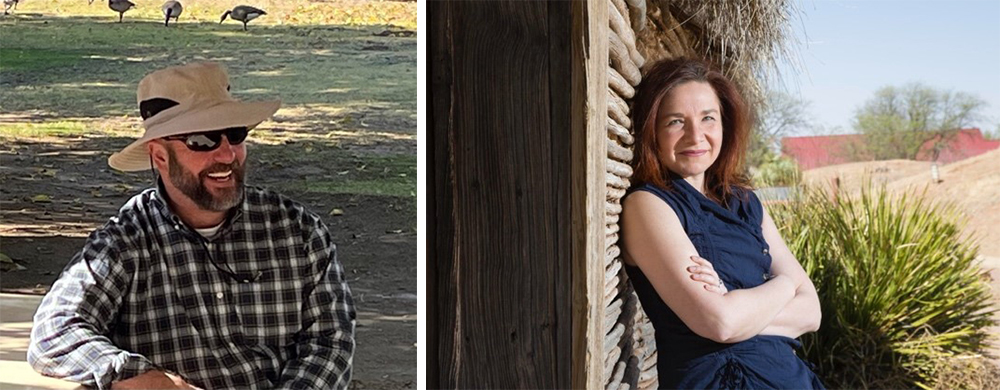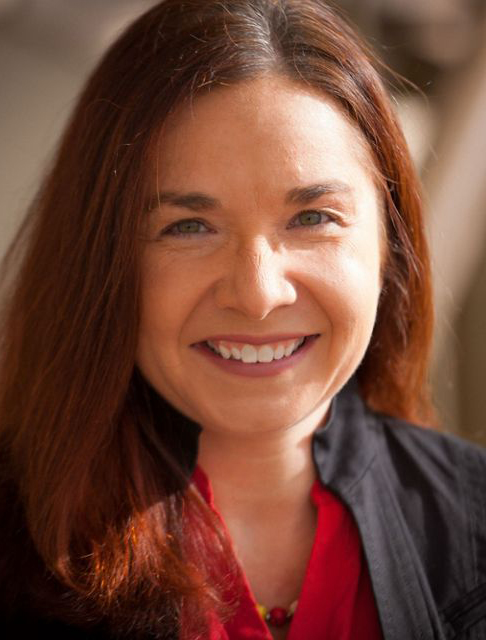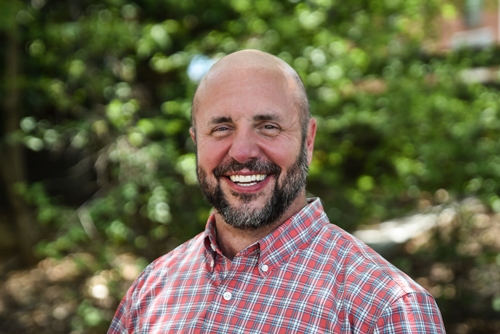Katharine Hayhoe is a world-renowned scientist, climate communicator, and passionate advocate for climate equity. She’s a climate ambassador whose message on climate change is one of hope. In 2019, she was named a United Nations Champions of the Earth Laureate in the Science and Innovation category. She has dedicated her life to motivating action on climate change. Every day. In Season 7, Episode 9, Katharine Hayhoe, Chief Scientist of The Nature Conservancy (TNC) joins host Sarah Thorne and cohost Jeff King, National Lead of the Engineering With Nature (EWN) Program, US Army Corps of Engineers (USACE), for a conversation on climate change that was so deep and wide ranging that we’re going to break it into 3 episodes.
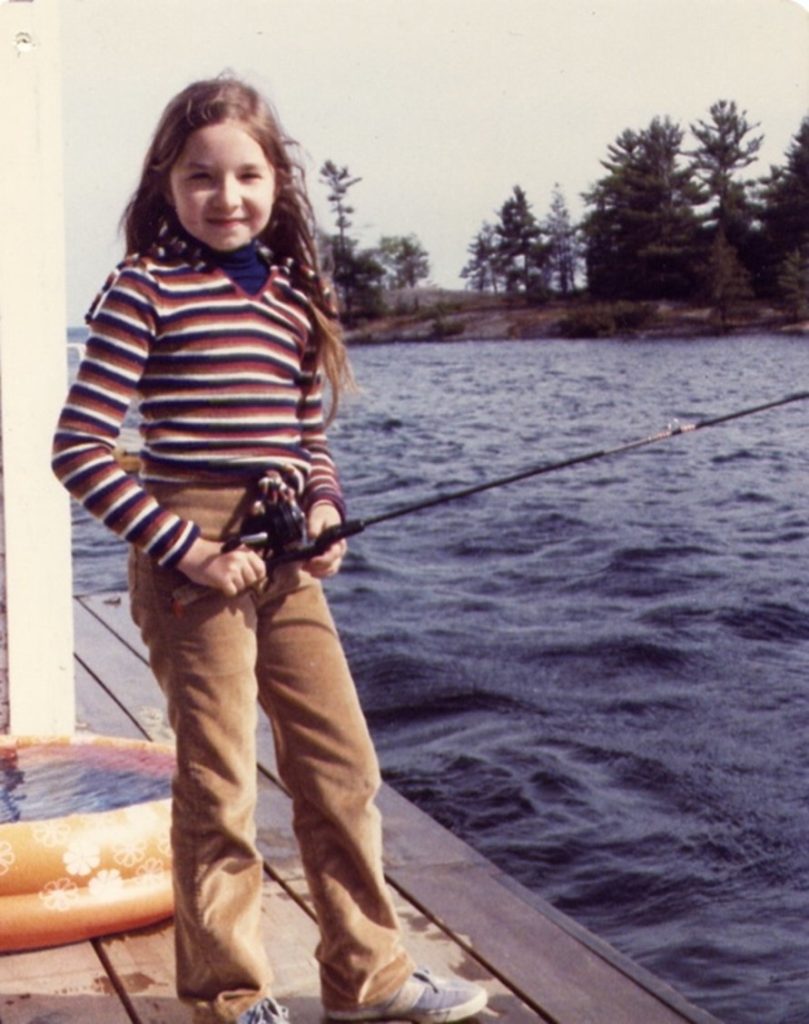
Katharine was born in Toronto, Canada, and grew up in a home where science was always front and center. “I grew up with the idea that science was the coolest thing you could possibly study.” Katharine started her academic career at the University of Toronto studying astrophysics, drawn to “all the discoveries that still remain to be made.” Late in her undergraduate studies though, needing an extra class to finish her degree, she saw a new class on climate change in the geography department. As she describes it, “That was where I learned, first of all, that climate science was the same science I’d been learning in my physics and astronomy classes. I also learned that climate change is much more urgent and imminent.” This led her to completely change her educational path. “What really shifted my perspective and led me to a PhD in atmospheric science was when I found out that climate change affects us all, but it doesn’t affect us all equally. It is profoundly unfair, affecting people in communities right here in the US or in Canada, as well as on the other side of the world, that have done the least to contribute to the problem. I felt if I had the skill set you need to work on this urgent global issue that affects every aspect of our lives on this planet, if I have those abilities and those privileges, I need to be using them to make a difference.”
Today, as Chief Scientist at TNC, she can live her passion for applied science: the need to understand how our world works; how our actions and our choices shape, affect, and impact our world—which in turn affects us; and the need to do something about it. “TNC is an organization that uses science to inform its decisions—decisions on the ground—to preserve the land, water, and air on which all life depends. TNC is working in all 50 states, in Canada, and in 78 additional countries to make a difference on the ground.” TNC has ambitious goals for protecting and conserving freshwater, land, and the oceans. As Katharine describes it, “We also have some very ambitious climate goals to prevent a billion tons of carbon emissions; to invest in the lives of the most vulnerable people who are being impacted by increasing climate extremes; and to ensure water and food availability for the poorest in the world.” TNC has over a thousand scientists and science staff. “My vision as the Chief Scientist is, first of all, to support and resource all of our scientists so that they can perform up to the top of their ability.”
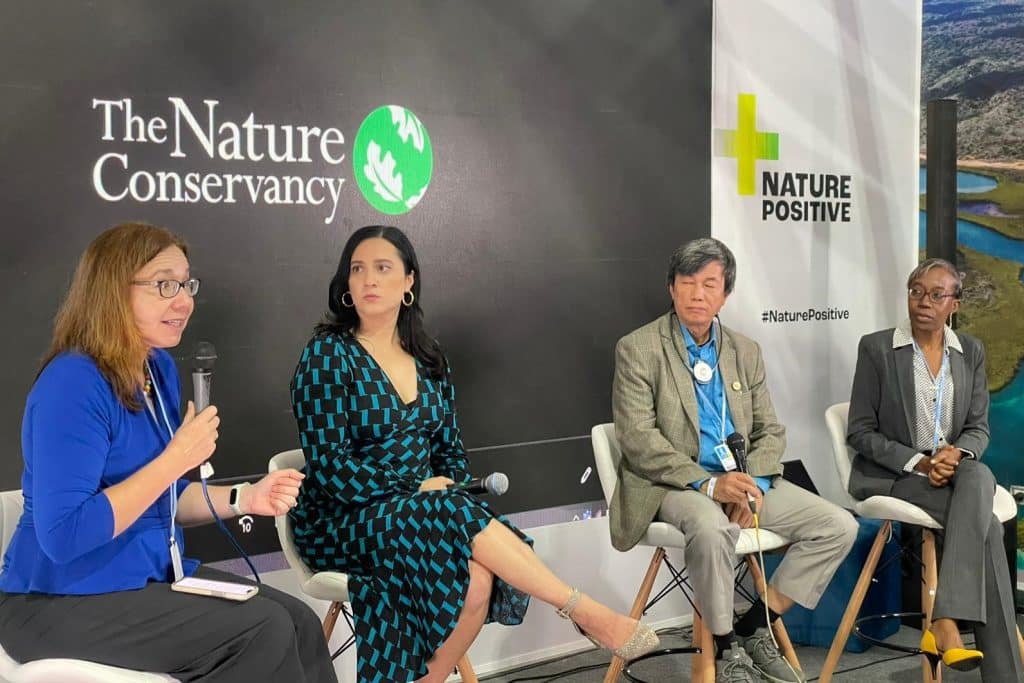
In describing the challenges of addressing climate change today, and in particular the social inequities, Katharine emphasizes that it is often those who have done the least to cause the problem who are the ones whose voices are not being heard. She notes that in North American cities, lower-income neighborhoods can be 10°F–15°F warmer than higher-income neighborhoods in the same city. “The number one reason for that heat is lack of nature, green spaces, trees, parks, which significantly cool urban areas during heat waves. And thanks to historic racist redlining practices, many low-income neighborhoods do not have access to green spaces in their communities. They are also located in areas that are much more prone to flooding. They’re in areas where air pollution is typically higher because that’s where the factories are sited or that’s where the freeways are. So, engaging with nature-based solutions not only addresses immediate issues of climate adaptation to heat, it also helps with air pollution, health, and flooding. It provides people with equitable resources they wouldn’t already have.” And as she says, this relationship also applies globally: “The richest 1 percent of people in the world, according to Oxfam, produce double the carbon emissions of the poorest 50 percent of people on the planet, not just through their lifestyle, but also through their investments. . . . Wherever we look, the injustices of climate impacts are very clear.”
Somewhat surprisingly, as Jeff notes, Katharine’s message is not one of despair but of hope. As Katharine describes it, “I think of this as the ‘head to heart to hands’ gap. In our heads, we know global temperature is rising and humans are responsible. Around the world, the vast majority of people are worried about climate change. In the US over two thirds of people are worried. So, we’re really reaching a tipping point in terms of the head, but they don’t understand how it affects the people, places and things we love. They haven’t made the head to heart connection. They still think of it as a future issue, a distant issue, and something that is not on their priority list. But whatever is on our priority list today, I can tell you, climate change is already affecting every single thing on that list. If we don’t understand there’s a problem that matters to us, why would we want to fix it?”
Katharine sees that as only half of the communications message that needs to be delivered. “We could have the whole world worried, but if they don’t know what to do about it, they’ll do nothing. And that’s exactly what we see in the US. Two thirds of people are worried, but only 8% are activated. That’s where the hope comes in. The hope is in connecting our heart to our hands. If I do something, could it make a difference? Right now, most people would say, ‘no, I feel hopeless, helpless, and I have no idea what to do.’ That is the perspective of 50% of people in the US, and I would say it’s probably more; they just don’t want to admit it. So, that’s why making that heart to hands connection is so important, helping people understand how they can make a difference. Because where do we find our hope? We find it in action. In the action that others are taking, in being aware of what is being done, in being aware of what can be done, and in being engaged in action ourselves.”
Through her newsletter—Talking Climate—and many other channels, Katharine is trying to close these gaps by sharing good news and the actions being taken by people. Katharine explains that, in her newsletter, “I share good news, shaded in green so you can’t miss it, about what’s happening around the world. Because a big part of what the social science shows us will motivate people to act is understanding we’re not alone. . . . Underneath the good news I have the not so good news, in red. And the not so good news is about how climate change is affecting the air that we breathe, how it’s affecting children’s sports, how it’s affecting bananas and chocolate and coffee—the things in our lives. And then in the next section, in blue, is what you can do about it. Every week I have something practical that people can do. The whole intent of the newsletter—it’s called Talking Climate, after all—is to give people things that they can talk about with people around them. Because the number one thing we can do to kickstart and catalyze action is the thing that two thirds of Americans are not doing, and that is we’re not talking about it.”
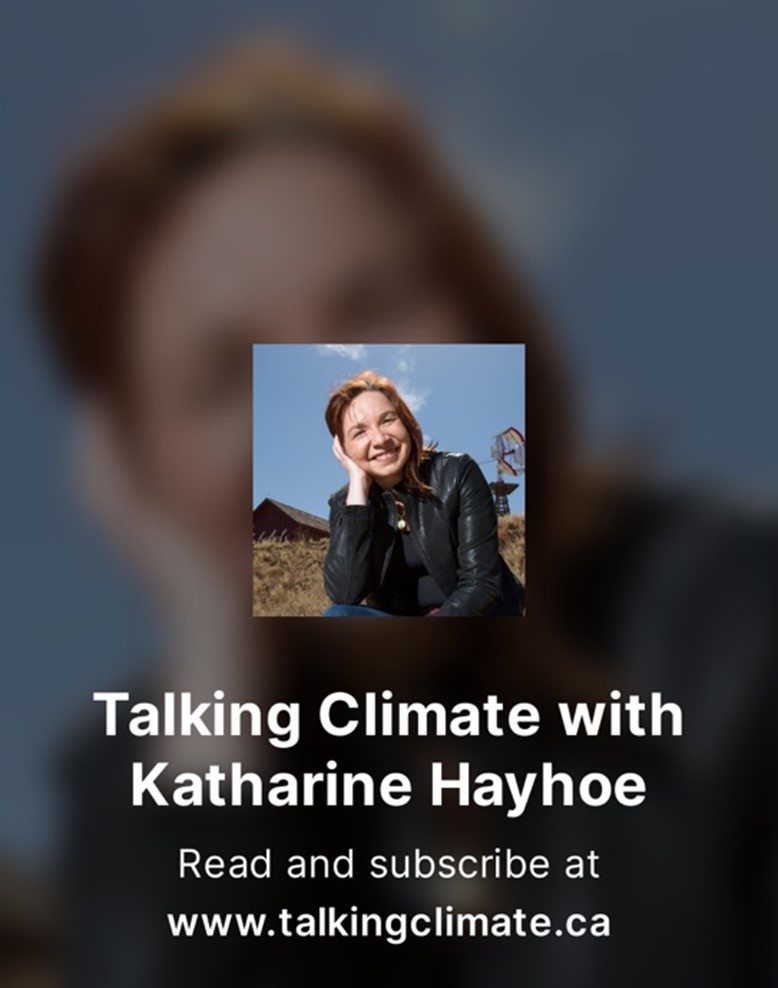
Jeff notes what a great analogy “head to heart to hands” is. “I’m going to remember that. I love how you laid that out and then offered the details associated with each one of those sort of steps and how we get to this point of everybody putting their hands on this boulder and moving it forward, together. Fantastic.” Sarah closes by noting that Katharine has given us a lot to think about in terms of what motivates us to take action on climate change, the fundamental values that drive us, personally and professionally.
In the next episode, Sarah and Jeff talk with Katharine about how she is personally making changes and taking action—and they have a fascinating discussion about the critical role that nature-based solutions play in addressing climate change. Tune in to Season 7, Episode 10, on June 12.
